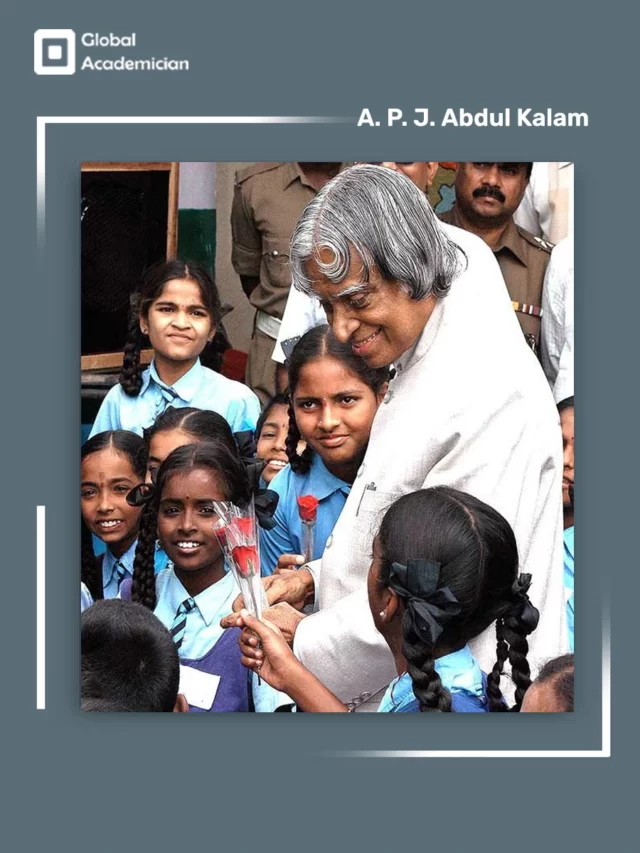National Talent Search Examination (NTSE) is India’s most prestigious exam conducted by the NCERT (National Council of Educational Research and Training) to identify students with exemplary academic talent and felicitate them with scholarships for their higher education under the government’s national scholarship program. Moreover, it’s not only a matter of scholarship but also a source of great pride and honor for every student to be recognized as the nation’s talent. Here you’ll get all the details about the NTSE exam, eligibility criteria, syllabus, exam pattern, scholarships, reservation, and more.
NTSE Exam:
NTSE is the national-level scholarship exam conducted by the NCERT for grade 10th students only. Every year, the NTSE exam is held at two levels: Stage 1 (State Level) and Stage 2 (National Level). States/UT bodies administer NTSE Stage 1, whereas NCERT administers NTSE Stage 2. Only Stage 1-qualified students are eligible to appear for the NTSE Stage 2 examination. To qualify for Stage 2, students need to score at least 40% (General/OBC category) and 32% (SC/ST/Physically challenged) in the Stage 1 examination.
Furthermore, the goal of the NTSE exam is to provide scholarships to students interested in pursuing further education in the fields of science or social studies. Students will be given NTSE scholarships based on their overall performance in both stages of the examination. Thanks to these scholarships, students will be able to continue their studies in their chosen fields.
| Exam Name | National Talent Search Examination (NTSE) |
| Conducting Body | National Council Of Educational Research and Training (NCERT) |
| Frequency of Exam | Once a year |
| Application | Online |
| Mode of Exam | Offline |
| Stages | 2 (Stage 1 – State Level) (Stage 2 – National Level) |
NTSE Exam Eligibility Criteria:
As per the eligibility criteria set by CBSE, NTSE is open to students of Indian nationality at the class 10th level, regardless of whether they study in India or abroad.
Age Limit: NCERT has set an age limit for students who wish to take the NTSE exam. Candidates must be under the age of eighteen years (18 years) on July 1 of the respective year of the exam.
For Stage 1 exam:
Students who are enrolled in Indian schools are eligible to take the first stage of the exam. The following are the eligibility requirements:
- Candidates must have obtained 60% marks (55% for SC, ST, and PH categories) in their class IX examination.
- Candidate must be a Class X student in any of India’s public or private schools.
- The candidate might be from any Indian state or union territory; there are no domicile restrictions.
- Students enrolled in open or distance learning programs are also eligible to take the NTSE exam if they are under the age of 18, unemployed, and taking the Class X board exam for the first time.
For Stage 2 exam:
- Only students who passed the Stage 1 (state-level) examination are eligible to take the Stage 2 (national-level) exam. Qualified candidates will be notified of their roll number, examination location, and examination date via NCERT’s official website.
For NRIs or studying abroad candidates:
- NRI students or Indian students who are studying abroad in Class X or equivalent are eligible to take the NTSE Stage 2 exam directly without having to take the stage 1 exam.
- The candidate must have obtained at least 60% in the final examination of the previous year.
- The candidate must take the examination in an Indian centre.
- Candidates must submit a request, along with an attested copy of their Class IX mark sheet, through the Head of the Institution where they are enrolled. The request must be received by the Head, Department of Educational Survey Division, NCERT, New Delhi, on or before the 31st of December of the respective year.
- The selected candidates will be awarded scholarships only if they decide to pursue their studies in India.
NTSE Important Dates:
| Events | NTSE Stage 1 Exam Date (Tentative) | NTSE Stage 2 Exam Date (Tentative) |
| Starting Date of NTSE Application Form | Oct-23 | No Registration |
| Last Date for the submission of the NTSE Application Form | Oct-23 | NA |
| Issue Date of NTSE Admit Card | To be Notified | To be Notified |
| NTSE Exam Dates | November 4-5, 2023 | 9-Jun-24 |
| NTSE Answer Keys | To be Notified | To be Notified |
| NTSE Result Declaration | To be Notified | To be Notified |
NTSE Syllabus:
The NTSE Syllabus is based on the combined syllabus of 9th and 10th-grade levels. It is recommended that students go through each and every topic of Mathematics, Science (Physics, Chemistry, Biology), & Social Science (History,
Geography, Civics). In addition, English, General Knowledge, and Mental Ability syllabus are included in the NTSE. Stage 1 preparation should be at the state level, whereas Stage 2 preparation should be done at the national level.
NTSE Exam Pattern:
NTSE exam is conducted in two stages – Stage 1 & Stage 2. For both stages, there will be two papers: Paper I – MAT (Mental Ability Test) & Paper II – SAT (Scholastic Aptitude Test). The exam is conducted in both English & Hindi medium, and students can choose one from the options available.
Paper I – MAT (Mental Ability Test) Details:
- This section consists of 100 questions based on Analytical and Logical Reasoning.
- This section assesses students’ reasoning and problem-solving abilities, as well as their capacity to think, evaluate, and visualize.
- Series, pattern perception, analogies, coding-decoding, classifications, hidden figures, and problem-solving are some of the key topics covered in this section.
Paper II – SAT (Scholastic Aptitude Test) Details:
- This section consists of 100 questions from three sections Science (40), Social science (40), and Mathematics (20).
- To solve these questions, the student must be well-versed in the 9th and 10th-grade curriculum.
NTSE Exam Paper Details:
| Mode of Examination | Offline (OMR sheet) |
| Paper Pattern/ Types of Questions | Multiple-choice questions (MCQ-based) |
| Number of papers | 2 (Paper I – MAT) (Paper I – SAT) |
| Number of Questions | 200 MAT (Mental Ability Test) – 100 SAT (Scholastic Aptitude Test) – 100 |
| Marks allotted for each question | 1 (One) |
| Time duration | MAT – 2 hours (120 Minutes) SAT – 2 hours (120 Minutes) |
| Negative Marking | No negative marking in both stages |
| Language | Stage-I: English or any other regional language chosen by the student. Stage-II: English or Hindi |
| Marking Scheme | 1 Marks for every correct answer No negative marking for incorrect answers |
NTSE Scholarship:
NTSE-qualified candidates are awarded scholarships for their future education. Approximately 2000 scholarships have been given for each level of education.
| Grade | Scholarship Amount (Per Month) |
| For Class 11th & 12th | Rs. 1250/ per month |
| For Undergraduates & Postgraduates | Rs. 2000/ per month |
| For PhD. | Fixed amount according to UGC norms |
NTSE Reservation:
| Category | Reservation |
| Schedule Caste (SC) | 15% |
| Scheduled Tribe (ST) | 7.50% |
| Person with Disability PwD | 4% |
| OBC (Non-creamy layer) | 27% |
NTSE Exam Benefits:
- NTSE scholars are given preference in the NDA (National Defence Academy) Exam.
- IIIT-Hyderabad, which is regarded as equivalent to IIT-Bombay, offers 15 seats to NTSE scholars.
- The NTSE scholarship is a step toward easy admission to a foreign university.
- Positive impact on a variety of jobs in the public and private sectors.
- IIT-Delhi, an Engineering College under the Delhi Government, awards bonus marks to students who pass the NTSE.
NTSE Exam Day Tips:
Don’t panic; stay confident on the day of the exam and follow these instructions:
- To the examination hall, students must bring their admit cards, a pencil, a pen, and a photo ID card.
- Students should reach the exam centre at least 45 minutes prior to the exam commencement time.
- Any student who arrives 15 minutes after the commencement of the exam will not be permitted to take it.
- Electronic gadgets/devices are not permitted at the examination centre.
Hope this information clarifies all your queries and doubts regarding the NTSE examination.
To stay ahead and stay informed about the latest educational updates, trends, and insights, we invite you to subscribe to our newsletter and regularly explore our blog. You can also connect with us on our Facebook Page to join our educational community at Global Academician. Join us on these platforms and embark on a journey of continuous learning and knowledge sharing.





